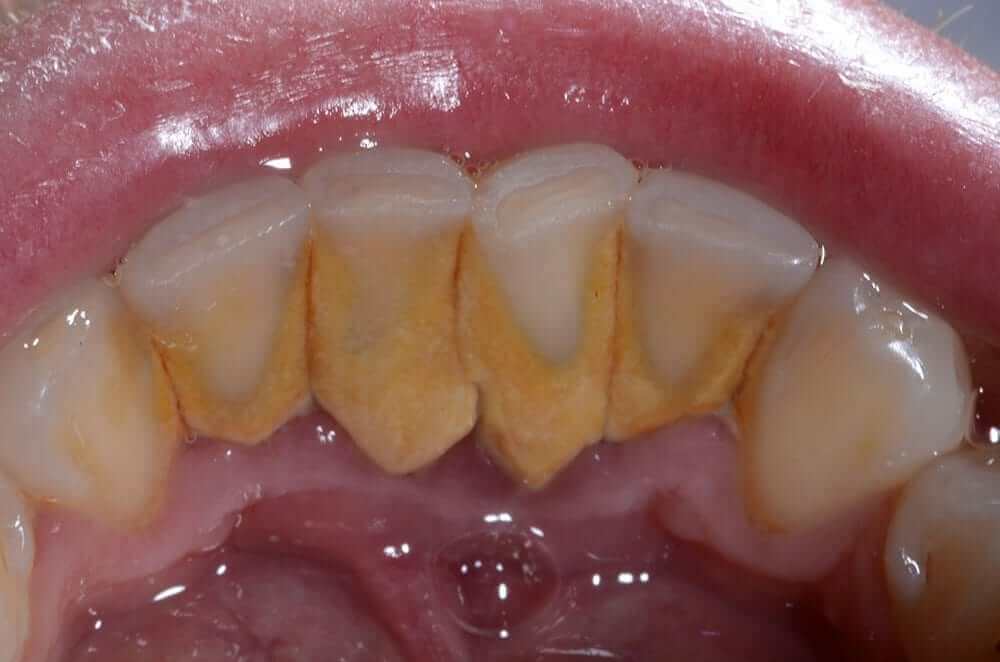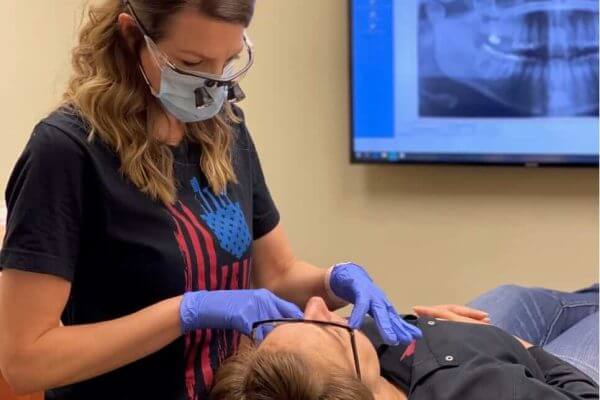A Menifee Dentist Can Treat Gum Disease and Teach You Proper Oral Care for Life
Are your gums becoming a purplish color? Do you notice regular bleeding or swelling? Chances are you’ve developed some degree of gum disease, also known as periodontal disease.
Lakefront Family Dentistry’s cosmetic dentist, Dr. Derek B. Hauser, DDS, delights in helping patients treat gum disease and maintain proper oral hygiene.
For more than two decades, Dr. Hauser has been transforming the smiles for thousands of Riverside County patients. Schedule a visit today to positively alter your health and appearance. Contact our office at (951) 244-9495 or Request an Appointment Online Today!
Periodontal Disease Treatment and Deep Teeth Cleaning Required for Hard Plaque Build Up
Periodontal Disease
According to the Centers for Disease Control (CDC), most gum inflammation and infections are the result of a periodontal disease. The earliest stage of this disorder is called gingivitis. Gingivitis causes swelling and redness in the gums, and sometimes the gums may bleed.
Periodontitis, a more serious form of periodontal disease, causes the gums to pull away from the tooth—this can lead to the loss of bone and teeth. Most periodontal disease patients are adults.
A recent CDC report states that 47 percent of adults aged 30 years and older have some form of periodontal disease. According to this report, this condition is more common in men than in women—56.4 percent of men versus 38.4 percent of women are affected.
The Difference between Gingivitis and Periodontal Disease
According to WebMD, gingivitis is characterized by gum inflammation. This inflammation, if not treated, can progress into periodontitis. However, not all cases of gingivitis progress into periodontitis.
Bacteria buildup in plaque causes the gums to become inflamed in the early stages of gingivitis. This inflammation causes the gums to bleed during teeth brushing. At this stage, the teeth are still firmly planted in their sockets.
If gingivitis is left untreated, it can advance into periodontitis. When a person has periodontitis, the inner layer of the bone and gum pull away from the teeth, forming pockets. These pockets collect debris and can become infected.
As the periodontitis disease progresses, the body tries to fight off the spread of infections. The toxins or poisons produced by the bacteria in the plaque and the body’s “good” enzymes produced by the immune system start to break down the bone and the tissues that hold teeth in place.
The pockets deepen as the disease progresses, destroying more gum tissue and bone. Teeth are no longer anchored in place when this happens. They become loose and tooth loss occurs. Gum disease, according to WebMD, is the leading cause of tooth loss in adults.
Warning Signs of Periodontal Disease
The CDC lists warning signs of periodontal disease:
- Painful chewing
- Bad breath
- Loose teeth
- Sensitive teeth
- Tender or bleeding gums
- Red or swollen gums
- Gums that have pulled away from your teeth
- Any change in how your teeth fit together
Risk Factors for Periodontal Disease
Here are some habits or conditions that increase a patients likelihood of contracting periodontal disease:
- Smoking
- Diabetes
- Poor oral care
- Stress
- Heredity
- Crooked teeth
- Underlying immune deficiencies
- Defective or cracked fillings
- Medications that cause dry mouth
- Female hormonal changes
Gum Disease Prevention
When proper plaque control is practiced, gum disease can be reversed. Proper plaque control includes getting at least two professional cleanings every year, in addition to daily flossing and brushing. Flossing removes food particles from underneath the gum line and between the teeth, whereas brushing removes plaque from the surface of the teeth.
Here are four lifestyle changes that can help decrease the risk of contracting a gum disease.
1. Stop smoking: Smokers are seven times more likely to contract gum disease than nonsmokers, according to WebMD.
2. Reduce stress: Stress makes it hard for the body’s immune system to respond correctly.
3. Eat a well-balanced diet: Proper nutrition helps the immune system fight infection.
4. Avoid teeth grinding: Grinding your teeth puts excessive force on the supporting tissues of the teeth, which could increase the rate these tissues are damaged or destroyed.
Dr. Hauser Can Treat Your Gum Disease
At Lakefront Family Dentistry, Dr. Hauser can treat gingivitis with an in-house deep cleaning. To ensure a painless experience, Dr. Hauser can administer a local anesthetic so you are extremely comfortable and relaxed.
One of Dr. Hauser’s highly skilled, registered dental hygienists will carefully remove any plaque and tartar buildup from tooth enamel and below the surface of teeth. Roots are then smoothed to remove infectious, hidden bacteria.
If you’re looking for an amazing Menifee dentist and want to schedule a cleaning, contact our office at (951) 244-9495 or Request an Appointment Online Today!
Meet Your Registered Dental Hygienists at Lakefront Family Dentistry







